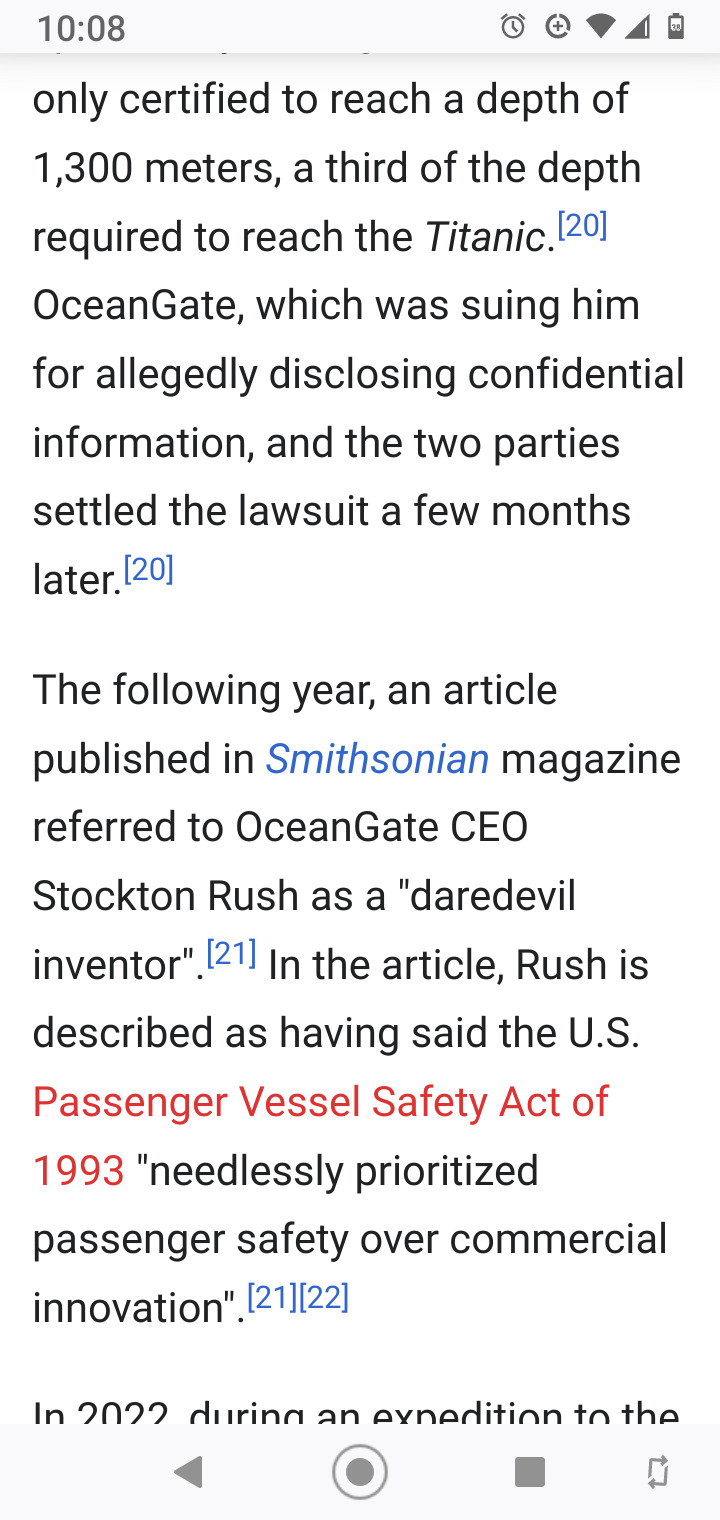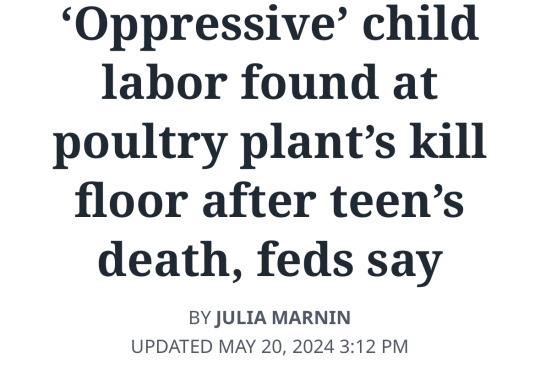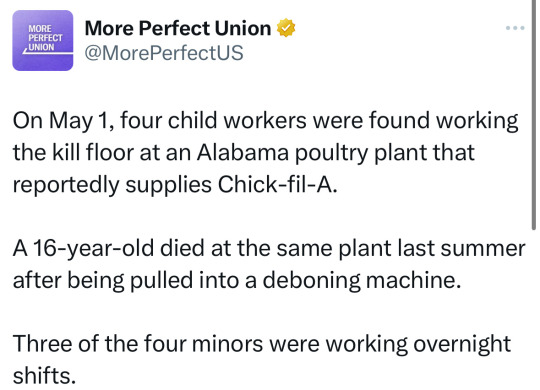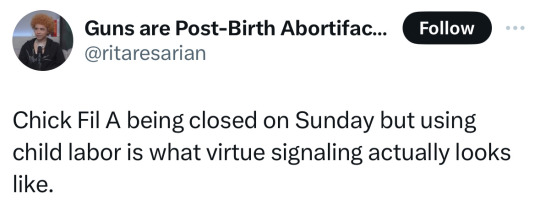#regulations are written in blood
Explore tagged Tumblr posts
Text
Well, the titan "submarine" is your local fucking reminder that "Regulations are written in blood" Is NOT a just a fucking saying or just a fucking joke.
#titan submersible#submarines#diy submarine#dumb ways to die#oceangate#Disaster waiting to happen#They killed themselves#Lets not lie#Regulations are written in blood#That's not just a fucking saying#Get that through your fucking thick skull#Titan#submarine
2K notes
·
View notes
Text

[Image Description: an excerpt from the Wikipedia article 2023 Titan Submersible Incident, focusing on the following, starting in the middle of one paragraph, "only certified to reach a depth of one thousand five hundred meters, a third of the depth required to reach the Titanic. OceanGate, which was suing him for allegedly disclosing confidential information, and the two parties settled the lawsuit a few months later." Followed by the next paragraph: "The following year, an article published in Smithsonian magazine referred to OceanGate CEO Stockton Rush as a "daredevil inventor".[21] In the article, Rush is described as having said the U.S. Passenger Vessel Safety Act of 1993 "needlessly prioritized passenger safety over commercial innovation".[21][22]" End I.D.]
Alright bro. Rest In Saltwater, I guess
13 notes
·
View notes
Text
#Regulations are written in blood#Tokyo#Airplanes#Japan Coast Guard Dash 8#Airbus A350#Disaster#News
3 notes
·
View notes
Text
Regulations are written in blood.

17K notes
·
View notes
Text
Remember:
A regulator restrains the powerful to protect the community.
A cop restrains the community to protect the powerful.
0 notes
Text
"Why do the kids in the show know everything about Greek Myths"
Well idk if I was told my parent was a Greek God and that put a target on my back for Monsters/Titans/Other God's to use to kill me, I'd learn everything I can! To Demigod's myths are lists of ways they could die, so it's in their best interest to learn them.
#percy jackson#percy jackon and the olympians#percy jackson and the olympians#pjo tv show#pjo#pjo series#batcavescolony watches#batcavescoloy watches the PJO tv show#they seem to know everything because its life or death for them.#like theirs a saying that regulations and safety instructions are written in blood. its the same here they gotta learn or they'll become a#a stroy used to teach the next generation what not to do.
2K notes
·
View notes
Note
The newest video from lab muffin beauty science seems like exactly up the alley of someone with your crusade for fact-checking. It was a wild ride of enlightenment, highly recommend.
Oh this is REALLY interesting. Thanks for the recommendation!
youtube
I first noticed the benzoyl peroxide scare when someone mentioned it in a post I made about the Radium Girls story inducing "what are they hiding from us now?!" anxiety, and I looked it up. I don't use any products with that ingredient at the moment, but it seemed worth checking into. And despite me not being a scientist, the fact that the benzene levels they cited showed up at VERY high temperatures seemed...off. Like how frequently are the products ever at those temperatures? "Maybe in a hot car?" I thought, but still wondered how often acne cream is left in a car in Australian high summer for that long.
And hey- the history professional with little chemistry knowledge was right! Seems like even ordinary laypeople can see the issue here if they just read the study even a little bit.
But because humans respond more to dramatic headlines- and, not going to lie, because we've been primed to believe in this by companies CONSTANTLY doing it for real throughout history with heavy metal dyes, radium, tobacco products, asbestos, fossil fuels, PFAs, etc. -you get "we're all rubbing cancer on our faces!!!!" reactions.
Really highlights the need for a balance between watching companies like hawks because they've proven that they will kill us if it pads their bottom line, and not falling for junk science.
#ask#anon#bad science#health#skincare#regulations were written in blood but many of them DID get written#meaning that they now exist! don't forget that!#we have to fight to keep them but they are there!
69 notes
·
View notes
Text
Safety regulations are written in blood
Remember those before you.
March, 1911. New York City.
146 workers in the Triangle Shirtwaist Factory Fire died because they were seen as expendable, unimportant, and exploitable.
Oldest victim: 43. Youngest victim: 14.
The owners were acquitted in December, 1911.
Insurance paid the owners $600 (inflation today: around $19,000) per life. In 1914 they settled in civil court: $75 dollars per life to the families. (Inflation today: $2,300.)
Future incidents happened with these two owners.
They never displayed remorse.
Resources for information below
Investigation and Trial:
Victims:
Survivors:
Owners:
I’m still thinking about that “is OSHA regulations Cop Behavior” post. Like. You know who thinks regulations are for losers? People who build submersibles out of logitech gamepads and rejected carbon fibre. People who trust starlink as their only surface lifeline.
Do you wanna be like the fine film on the floor of the Atlantic that was once a billionaire? Is that the hill you’re really gonna die on?
We have an expression in my field- “Regulations Are Written In Blood”
People don’t have fucking safety standards as a power trip, we have them because somewhere in the past, NOT having those regulations killed or maimed someone.
A lot of laws out there are bullshit- safety regulations sure as fuck aren’t. I have the literal scars to prove it.
70K notes
·
View notes
Text
Good evening current mouthwashing thought is how there’s going to be new space-faring regulations put in place with the blood of the pony express crew.
20 notes
·
View notes
Text

newsweek wouldn't let me post this after i signed up, so here ya go tumblr.
#luigi mangione#revolutionary#i can't wait to read his manifesto#is he a sympathetic villain or an antihero?#either way society needs people like him to progress#'regulations are written in blood'#he did a bad thing for a good reason#this is about fighting the good fight
13 notes
·
View notes
Text
Thinking about how people think retail work is "easy", the idea that "unskilled labor is a myth", and some discussion/discourse I've seen about workers preferring to do sex work over retail. And I think many people just don't realize that retail work has a physical danger to it – and no, not just from other people.
Exactly what people do in their jobs will vary depending on the business, but as for me? I work with sharp metal and plastic at high speeds. Heavy objects could be dropped directly onto my head if I'm not extremely careful, and even then, all it takes is a slip of the hand. Due to our refrigerators and freezers, I am jumping between temperatures several hundred times a day, which leaves my body suffering from the whiplash. I am thankful to have a manager that enforces breaks, but my job takes a toll on me even on the mildest of work days. I could get seriously hurt, and a lot is already being asked of me.
"Retail/fast food/etc. is unskilled labor –" okay but I am not selling expert labor to you, I am selling my well-being. I am being paid to do not just the things you don't or can't do, but to damage and risk my body and overall health in these specific ways so that your day might be a little better.
And honestly, I'd be fine with that, if I got some recognition for it (in both pay and general attitude). I am fine with a little risk and damage so long as it's for proper compensation – I don't view this work as demeaning by nature, and I take pride in my skill at doing it. It's just that I wished others around me cared more about this side of my job.
On a similar note, restaurant/fast food/etc. workers are not just being paid to make and bring out your food. They are being paid to risk oil burns, regular burns, scaldings, being stabbed or sliced, their hands being mangled by equipment, their fingers being crushed by machinery, any number of diseases that food can carry before it's prepared, and death if something goes wrong with the gas. All for your convenience.
It doesn't matter if it's unskilled, or if "anyone can do it". A good salary is one that takes into account what one is sacrificing and risking to complete this job. It takes into account the damage to one's body and the everyday dangers they are in. Salary is, as people know, payment for energy and time, but it is also a reimbursement for the expense of putting oneself in harm's way, and a person's salary should reflect that.
This isn't meant to shame customers. I think it'd be a little silly to shame people for taking on my services when I am well aware of the risks in them (although I acknowledge that gets complicated when people have to take these kinds of jobs regardless of the risks, due to desperately needing money). It's more of a perspective I don't see others talk about often. Even before factoring in shitty bosses, crappy work environments, and the like, these sorts of jobs have dangers and cause damages that should be acknowledged. And people should be properly compensated for taking them on.
#politics#retail#front soup.txt#bvie.txt#silver.txt#looking at the scrapes I got today without realizing whoops#and the injuries I've gotten from things going wrong#something something osha regulations are written in blood and this is a workspace too#blood can absolutely spill here
41 notes
·
View notes
Text
What's insane to me is all the people who benefited from child labor laws are the ones insisting on rolling back the regulations. "Teenager gets pulled into a deboning machine" sounds like something straight out of Upton Sinclair's writings (which, I grant you, The Jungle was a work of fiction, but it was based heavily on what he saw.) So they're either willfilly ignoring the past (most likely,) are slightly sadistic (also possible,) or fucking illiterate, or all three.

Source


Source
#all of the dead Victorians and Edwardians are rolling in their graves right now#What is this comic reality? Wherein but a few generations we gladly disregard hard-won but pretty self-explanatory wisdom#Regulations are written in blood#also fuck chick-fil-a#even ignoring all of chick-fil-a's fuckery#their chicken was always flavorless garbage#the fries soggy and unbelievably bland#and their dipping sauce is overrated#the absolute pinnacle of Satirically Awful White People Food#MANY thoughts and a reblog
24K notes
·
View notes
Text
Soooooo I wrote this incredibly self-indulgent thing about Miles. I have many feelings about how he keeps himself so tightly in control. It's gotta go somewhere.
Disclaimer it's quite dark, so mind the trigger warning and keep yourself safe <3
TW: self-harm, not what I would consider graphic descriptions, but it is the central theme and way more than a mention
The lock clicks. He slips his suit jacket off. Loosens then removes his tie. Untucked, buttons undone. It’s all laid out on the bed. Step by step. Shoes set to the side and trousers swapped for silken pajama pants.
The bathroom door closes behind him. The second lock between him and the world. The shower comes on. Towel laid out on the counter.
His drawer, second down on the left. He pulls out the small black bag. Gold zipper. Supple leather. Inside, his collection. Three packs of new razor blades. An open pack of blades; used ones tucked into the back. A single hypodermic needle. A crafting knife. Two unopened band aids.
The rest of the drawer’s contents is ignored, antiseptic and suture kits, butterfly closures and rolls of gauze, in favor of practiced hands sliding the tin of blades from the bag and the blade from the tin.
He sits on the toilet, lid down. Elbow straight. Fist clenched. The first slice with a small inhale. Bright and sharp and stinging. Familiar and comforting. Line after line as red blooms from the wounds. The ecstasy second only to the Kiss. Rivulets follow gravity down. Strategically placed tissues catch the mess.
Stained crimson, they fall into the waste basket. He flexes his wrist, testing the pull of the broken skin, blots the last of the blood away. Blade inspected and stowed; everything returned to it’s place. Pajamas folded on top of the toilet, he steps into the shower.
#path of night podcast#my fic#*clenches fist* i WILL get better about sharing my writing#but yes many many thoughts about how he regulates himself emotionally and the toll that keeping himself in check takes#i dont have actual like coherent thoughts otherwise i would have written more lmao#but i always gotta have some character to slap the self-harm headcanon onto and unfortunately for miles he is The Chosen One this go around#i would imagine hes very methodical and ritualistic about it and finds it very centering and grounding and cathartic but also#tips right into that edge where he NEEDS it and its becoming a coping mechanism he doesn't really have a replacement for when push comes to#shove and how does he cope when this thing that supposedly gives him control leads him to being more out of control v juicy thoughts for me#if i actually bothered to write anything substantial i would probably post it to ao3 but for 250 words im not sure its worth it lmao#i feel like my tenses are all over the place too but im just going to live with it!!!!!!!!!#i also have many many thoughts about how marcos is involved and complicit spoiler hes the one who put all those medical supplies#in the bathroom just in case miles ever needed them#and the blood bond only complicates things
12 notes
·
View notes
Text
dude american politics are so fucked rn, elon musk is literally getting put in charge of a new thing called “DOGE” that aims to deregulate everything and cut a bunch of government program’s funding
#this makes me so mad#safety regulations are written in blood#……but erased with money#seriously tho#DOGE? DOGE?!????#OUT OF ALL THE THINGS THAT INSIGNIFICANT FUCK COULD DO#HES RUINING THAT MEME?#it’s been dead for a while tho#still aint cool#fuck musk#fuck trump#fuck the rich#america#american politics#aghhhhhhh#saw this on 196#r/196#cringe
4 notes
·
View notes
Text
Things that happen at work:
So, we have quite a few CDLA drivers at my company that are legal immigrants from various parts of Africa and the Middle East, as well as a significant number of legal immigrants from South America and the Caribbean.
I honestly think it’s just…so freaking impressive that someone who speaks two or more languages looked at their career options and decided “least amount of effort for relatively good pay” and chose driving.
Because honestly, if you can exist in a state where you just react in the safest way possible to other drivers being absolutely moronic, instead of being emotionally invested in the road (ie road rage) that is LEGIT impressive.
Also? Driving professionally is actually hard because of all the regulations that need to be followed? You need to literally be a bunny ears lawyer about regulations, on top of dealing with faulty ELD systems and equipment (gps tracking systems that record drive time so that drivers cannot fake paper logs) PLUS being able to pass a DOT inspection on the fly? You basically have to be able to give your self a State Trooper inspection every time you get in any vehicle that can haul more than a mattress strapped to the roof.
I really, genuinely like the people I work with, but I don’t know how much longer I can tolerate the industry.
#humans are space orcs#things that happen at work#people are generally good but regulations are written in blood#truckinglife#it’s not bad the people are great but holy fuck am I just DONE#had to call a driver because he came back from his mandatory 30 minute break 4 minutes early#4 (4) FOUR MINUTES FUCKIING EARLY#and he gets a violation for for taking a long enough break#that’s just today#drivers really do look at delivery times and don’t account for them selves
15 notes
·
View notes
Note
How did you get set on fire?
Tl:dr Don’t weld without protective gear, and OSHA is your friend.
I’ve been set on fire three (3) times, none intentional. Years ago, I worked as a mechanic in a particularly shady auto shop. I was young, poor, and needed work, so I took it. Learned many things there, including how to weld. They taught me the basics, and left me to figure out the rest on my own.
Now, if you’re going to weld, and especially if you’re going to weld above your head, it is vitally important, to the point that it’s a law, that you have proper fire resistant or fire proof equipment to keep you safe. This shop refused to provide proper clothing or equipment to its workers, based on the weak excuse that “gear gets stolen”. (This is a shop owned by a man who takes his entire extended family on a 2 week Disney cruise every year.)
One day, I’ve been tasked with cutting open a frame on a car to reattach some nuts that have broken off inside in order to thread bolts into them. So I get to work, cut it open, bend a flap down, tack weld the nuts back up, fold the flap back up, and set to welding it back closed. I’ve borrowed a welding mask from a tech, and am wearing welding gloves that I’ve bought myself, and beyond that have three shirts on as a small amount of covering (undershirt, t shirt, work shirt).
Now, when you’re welding, you are constantly being showered in sparks and hot metal, little pinpricks of heat pop up all over your exposed skin and some non exposed parts. They are hot for a second, then cool off. This is normal. When you get a spot of heat that then gets hotter, you’re on fire.
So as I’m welding, doing my best to get this done properly, while grousing in my head about the lack of proper protection, I notice that I’m having a harder time than usual seeing my work. It’s become very hazy under this car, and I’m having to try to focus to see what I’m doing. I stop, flip my mask up, and look around to try to clear my eyes. Then I looked down.
At the active flame burning a basketball sized hole in my shirt on my chest.
Proceed into the most enthusiastic performance of the belly bongos you ever did see.
Manage to put it out, and I’m basically unharmed, minor burns only. My outer shirt is destroyed, as well as my t shirt, and my undershirt has crystallized into that weird almost plastic shell modern clothing takes when it’s been burned.
I hear raucous laughter from across the shop as my coworker is pissing himself laughing at me (which, admittedly, it was quite funny) and I’m trying not to yell at him for not warning me that I was ON FIRE instead of just watching me.
I go up front, to tell my manager what happened. He tells me to get back to work. So I worked the rest of the day, clothes looking like I got shot with a shotgun in the chest and finish my ten hour shift before I can go home.
Second time, I was smarter and wore my overcoat, sweat be damned, and set my arm on fire. Patted it out before it ruined the coat, just left a nice sear mark.
Third time I didn’t even look, just patted my chest until it wasn’t hot anymore and kept working.
Bear in mind this is also the shop where I had our heavy truck lift settle on me, and I got asked to commit a felony for 20 dollars. But those are stories for another time.
#asks#for you anon a story#remember kids#those annoying safety regulations#are there because some asshole tried to cut a corner and pocket the saved money at the cost of someone’s life#every one of oshas rules are written in blood#if they sound ridiculous#realize that is because someone did it#osha is your friend#don’t hesitate to call them#they’ll come out and check out your workplace#and they will never tell your boss it was you#they are WORKER protection which means they are AGAINST BOSSES#we don’t have many organizations on our side#but OSHAs got you
6 notes
·
View notes